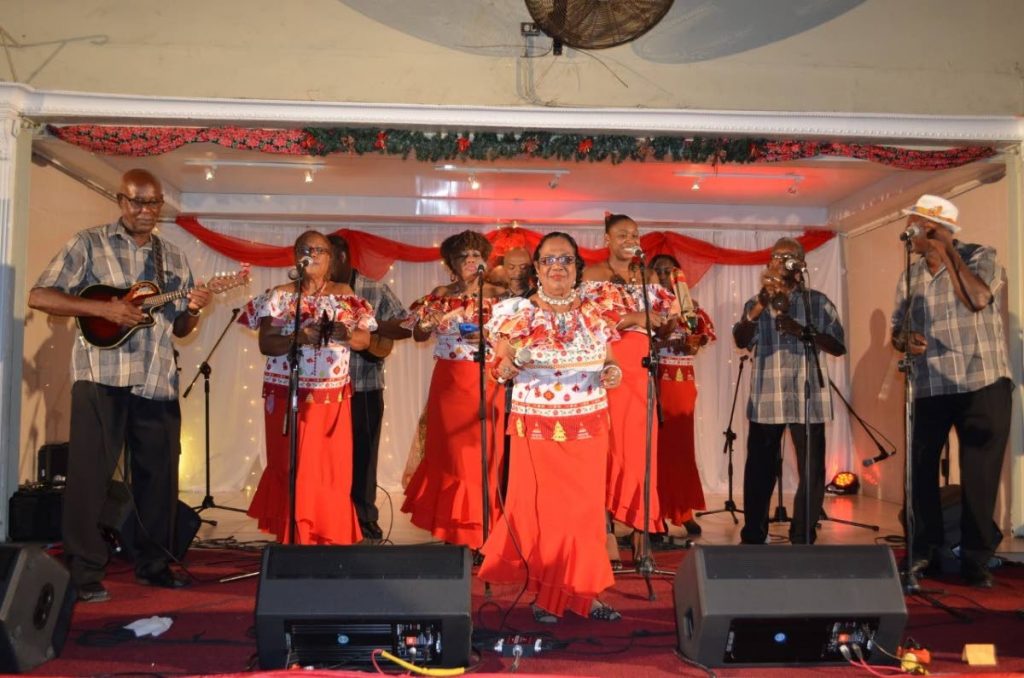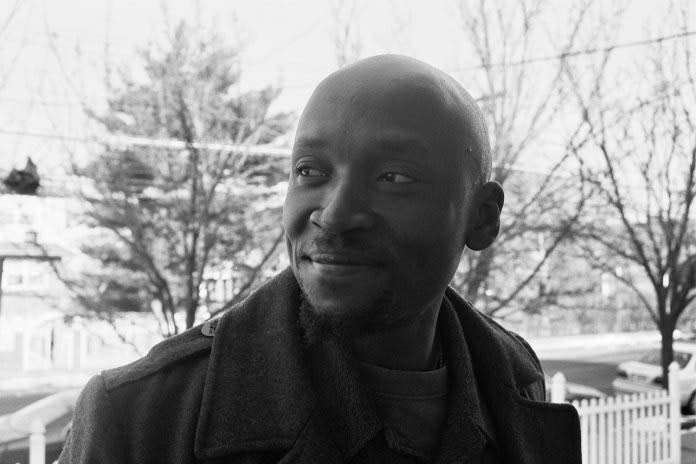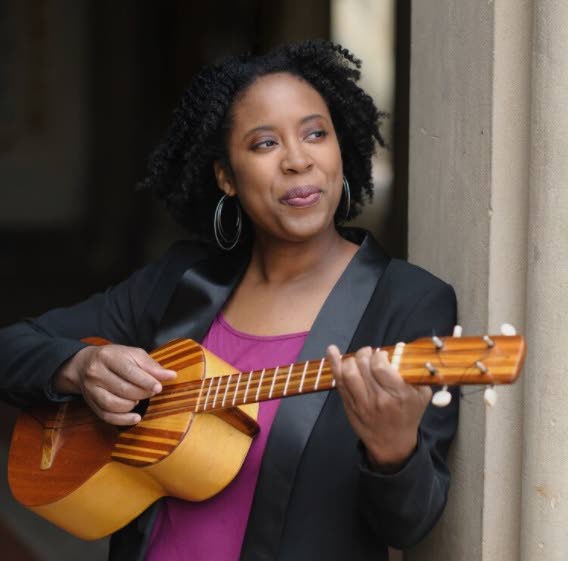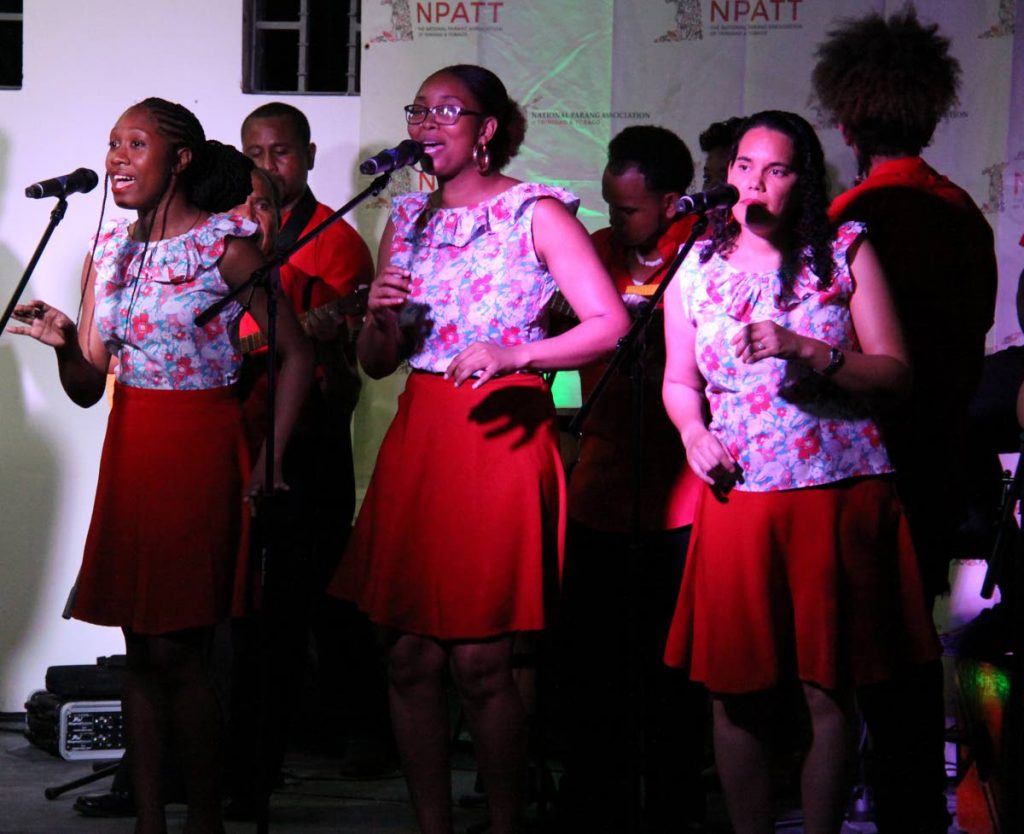Caribbean music documentary Parang receives Emmy nomination

A Caribbean music documentary called Parang has received an Emmy nomination, the top award for television in the US.
Brooklyn-based Haitian filmmaker, Emmanuel "Mano" Alexandre Jr, who was producer, cinematographer and editor of the film, announced the nomination on his Facebook page manosalon.live.
"I’m proud to announce that Manosalon...got nominated for an Emmy Award from the National Academy of Television Arts and Sciences. The film in question is Parang with Artist and Ethnomusicologist (Dr) Danielle Brown. This is our very first nomination in our kick-off year!"

- Photo courtesy Maria Rosella Molinu
In an interview with africologymedia.com Alexandre said his given name is Emmanuel Alexandre Jr but he is called "Mãno" which is short for Emmanuel in Haitian/Kreyol. He was born in Port-au-Prince, Haiti, and came to the United States just as he was turning 14 in 1990. He has a bachelor’s degree in media studies/journalism from (CUNY) Hunter College and an MFA in cinematography and documentary directing from (CUNY) City College. Alexandre teaches filmmaking at CUNY and he writes, edits, directs, produces and shoots for both fiction films and documentaries.
"I guess that makes me a filmmaker."
Brown in a post on mypeopletellstories.com said in 2018 Alexandre became interested in My People Tell Stories, an initiative she founded in November 2014 to "promote and validate the knowledge produced by people of colour and subsequently create an education system that is more diverse, equitable, and inclusive." My People Tell Stories provides services in arts education, including professional development for teachers, artists, and researchers who seek to centre diverse, inclusive, and equitable practices in their work.
She said Alexandre asked permission to film some of her ongoing work as an artist-scholar and educator.
"Three years later, the resulting film project, Parang, has been nominated for an Emmy Award! Congratulations to Mano for a well-earned nomination."
According to mypeopletellstories.com Brown is an artist, scholar, and entrepreneur. She earned a doctorate in music from New York University with a concentration in ethnomusicology and specialisation in the music of Latin America and the Caribbean. She is a former Assistant Professor of Music History and Cultures at Syracuse University, and has lectured at various colleges and universities. She has worked with elementary, middle, and high school students, and is certified in the Kodály method (a way of developing musical skills and teaching musical concepts beginning in very young children).

Brown is the author of the music-centred ethnographic memoir, East of Flatbush, North of Love: An Ethnography of Home, and the East of Flatbush, North of Love: Teacher Guidebook. Brown is a 2018 NYSCA/NYFA Fellow in folk/traditional arts and was a visiting scholar in the Department of Musicology at the University of Miami for the 2019-2020 school year. She is also an active vocalist, composer and cuatro player.
Parang, which runs just a little over nine minutes, opens with Brown playing the cuatro and singing Golpe by the renowned La Divina Pastora parang group. The film also features the song Historia De Trinidad by San Jose Serenaders.
"Music is the one thing I can do that really takes me away from whatever problems that I have," she said.
Brown explained parang is a Christmas tradition in Trinidad where a group of musicians called paranderos would get together and surprise a family with the gift of song. She said this would usually take place in rural or "Spanish" areas of Trinidad, and as early as 1 or 2 am the paranderos would wake up the residents of a house with music.
She then spoke of her memoir East of Flatbush, North of Love: An Ethnography of Home, and said it reflected her experiences growing up in East Flatbush, Brooklyn, which is a West Indian enclave. She explained she wanted to use her experiences to teach Caribbean history, especially the history of Trinidad and Tobago.
The film then moved to Brown performing the Mighty Sparrow's classic Jean and Dinah.
"When I became part of the academic world I realised the work that was being done didn't reflect me and it didn't reflect the stories that I learned growing up."
She explained one of the problems of music education is a lack of diversity and there were people trying to teach Caribbean music who were not familiar with it and were attempting to teach from a European perspective, which is problematic. She said there is a belief that the basics of music cannot be taught using Caribbean music and the norm is Western music.
"And I think that is completely false. It is music, and someone's had to learn it, right?"

She said Western art music like Bach, Beethoven and Mozart, is treated as the standard and the core, and she pointed out that they were all "white men."
She said at the Caribbean Music Pedagogy Workshop (CMPW) they teach teachers, educators, artists and other interested people to teach the music in a way that is more authentic.
The CMPW is a ten-day, three-summer professional development programme that combines studies in ethnomusicology, music education, critical race theory, and social justice to offer new ways of exploring Caribbean music whether in a classroom or performance setting. Each summer offers ten days of intense study of music from at least three Caribbean nations representing different language areas from the region. Summer 2020 focused on Cuba, Haiti, and TT.
In the documentary, Brown stressed they want to create an environment where the participants not only see the value in teaching the music but the value in the people who already do this kind of music. She added that it provides a way for people to want to learn more about the history of a place and to think more deeply about the songs and their meaning.
"I think by incorporating music into the book the way that I did it kind of allows for that."
Brown then reflected on the state of Caribbean culture in her Brooklyn neighbourhood.
"We still have a Caribbean culture that hasn't gone away yet. 'Yet' being the operative word. It's this fear that what you know is slowly eroding and it may not be there any more."
You can watch Parang or Alexandre's website, manosalon.live under the heading "arts."
The 73rd Emmy Awards Nominations will be announced on July 13 and the awards will be aired on September 19 on CBS and Paramount+.

Comments
"Caribbean music documentary Parang receives Emmy nomination"